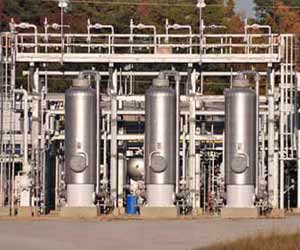Natural Gas Careers
What You Need to Know
Natural gas is already a very popular source of natural energy in the US, in part due to the fact that it is a far cleaner fuel source than coal and petroleum.

According to the Energy Information Administration, an estimated 24 percent of energy used in the US is derived from natural gas sources. Natural gas can be used for a variety of purposes, from powering cars to heating homes. A 2010 report from the EIA shows that in 2008, 29 percent of natural gas was used for electrical power, while 73 percent of natural gas production was used for industrial, residential and commercial purposes, and one percent for vehicle fuel. Thanks to the fact that natural gas is already a well-established energy industry, there is no shortage of jobs available in the field.
How Does Natural Gas Power Work?
Natural gas is a form of natural energy composed primarily of methane gas which is a product of the processes of fossilization which have occurred underneath the earth’s surface. Millions of years ago the remains of plants, animals and other organic materials decayed and, over time, were covered by sand, silt and rock. The pressure and heat these organic materials were exposed to under the earth’s surface caused them to transform into coal, oil and natural gas, an odorless gas which we now use as a fuel source.
Since it lies beneath the earth’s surface, it is necessary to drill into the earth’s crust to obtain natural gas. The process of finding and channeling natural gas into usable energy is complex and requires a variety of people with many different skills.
First, geologists must search for natural gas by conducting seismic surveys, analyzing rock samples and performing other tests to determine where natural gas is likely to be found and pinpoint best spots to drill a well for natural gas. A drilling area may be located on land or offshore in the ocean. Once natural gas is found, it is channeled up through the well that has been drilled and into a network of pipelines. These pipelines lead to a gas processing plant, where the gas is cleaned and the methane (which we use for energy) is separated from other gases, like butane and propane. Butane and propane are by-products of the process but can be used for other purposes, like powering gas grills.
Job Outlook in the Natural Gas Energy Sector
Job prospects in the natural gas sector are expected to stay strong as the US and other nations move away from coal and petroleum and turn towards cleaner energy sources. The natural gas industry is already well established in the US. According to the Energy Information Administration, at this time a little more than half of US households use natural gas as their primary heating fuel, and the use of natural gas for other purposes, such as powering automobiles, may well increase as technological advancements are made. An example of a job in the construction sector of the natural gas field could be a driller, who uses heavy machinery to drill for natural gas beneath the earth’s crust, while an example of a job in the management field could be a project manager, who oversees drilling projects as a whole. A job in the development sector would include an environmental engineer, who would determine how to reduce negative effects of drilling on the environment, while a job in assessment and awareness might involve working as a safety specialist to ensure that the often-dangerous work of drilling is being performed safely.

